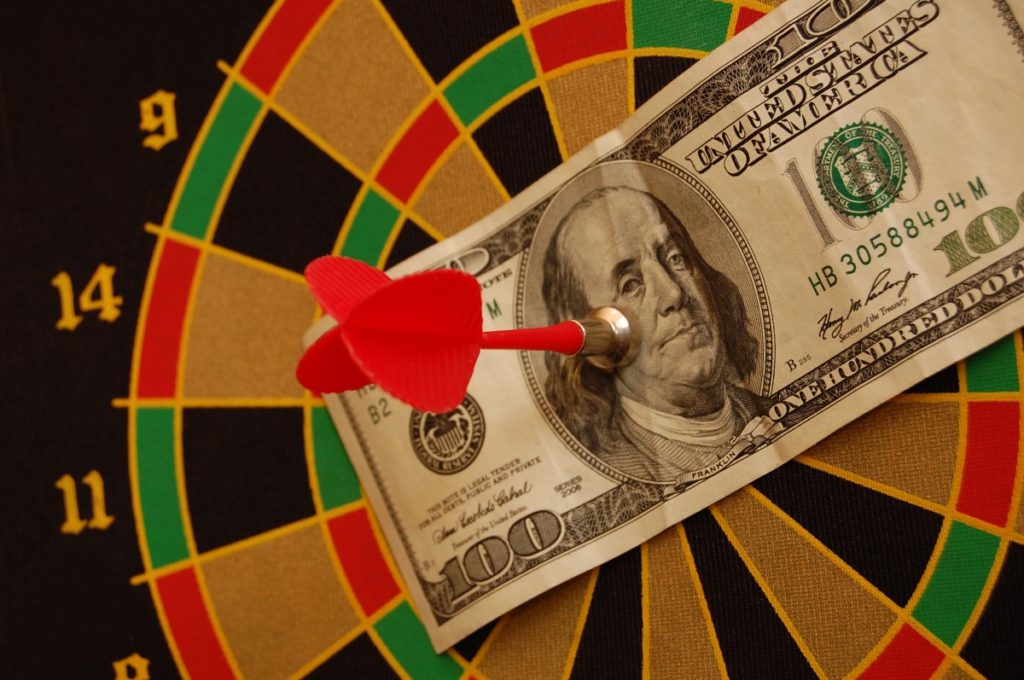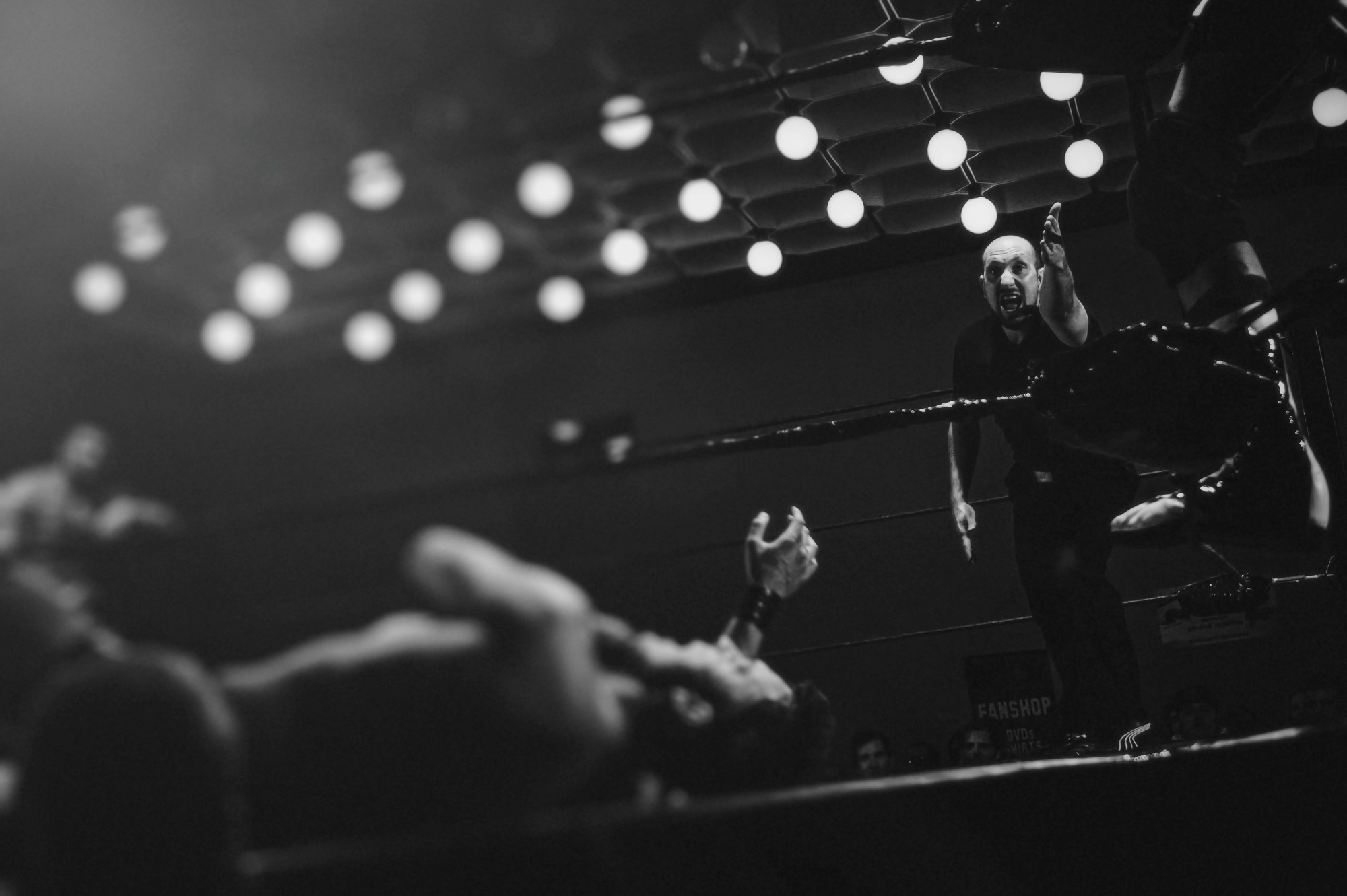
Nowadays, sports fans are just a tweet or an Instagram comment from getting to communicate directly with their favorite athletes. As social media usage and athlete salaries have gone up, the barriers between fan and player have decreased, making it easier than ever for fans to truly feel connected to the players they watch in person or on TV. But, if Spencer Dinwiddie of the NBA’s Brooklyn Nets could have his way, fans could even buy a portion of his recent three-year, $34 million contract extension. When Dinwiddie announced his plans to sell Professional Athlete Investment Tokens (“PAInT” for short) representing shares of his contract, it became the talk of the basketball world.[1]
For a minimum of $150,000, high-net-worth investors accredited under Regulation D of the Securities Act of 1933 could buy a “Dinwiddie coin,” essentially investing in Dinwiddie’s future worth as a player.[2] Each token purchased would give Dinwiddie more immediate income, allowing him to pursue personal investments while guaranteeing investors interest payments that—in the future—could go up or down based on the value of Dinwiddie’s next contract.[3] However, the NBA was not as enthused with Dinwiddie’s plan and issued a statement asserting that, based on the parameters of the NBA’s Collective Bargaining Agreement (the “CBA”), players cannot assign interest in their contract compensation to a third party.[4] The CBA is the NBA’s constitution, as it is the jointly agreed-upon compendium of league rules between team owners and the NBA Players Association—the union for NBA players. While the matter is still pending—Dinwiddie met again with the league soon after the NBA released its initial statement[5]—the plan is yet another attempt by athletes to turn their contracts and earnings into tradeable financial assets.
In 2012, former venture capital executive David Beirne founded Fantex to be the stock market for sports, envisioning a world in which fans could buy and sell “stocks tied to an athlete’s financial performance.”[6] For a couple of seasons, Fantex was successful in signing up mostly football (and some baseball and golf players) players to sell off portions of their future earnings for upfront payments—much like Dinwiddie plans to—getting fans to invest in stars like Vernon Davis, Alshon Jeffery and Allen Robinson.[7] But, investor enthusiasm faltered, leading Bill Garvey, then-president of Fantex, to admit “[u]nfortunately, that business model did not turn out to be viable.”[8] Interestingly, while the NFL and MLB did not openly endorse Fantex’s model of buying up players’ future incomes and re-selling those shares through the equivalent of public offerings, neither league prevented players from participating. This indicates that the NFL and MLB CBAs do not have the same prohibition on third-party contract assignment as the NBA’s does.
There is some legal precedent for similar arrangements outside of the sports world. Income share agreements have become an option for people who want to invest in the future earnings of current college students, and a bipartisan group of U.S. Senators have introduced a bill, the “ISA Student Protection Act of 2019,” that sets forth a legal framework for the practice.[9] These agreements let students go to college for free with a portion of their post-college annual income going straight to the investor(s) that funded their education. This sets up a win-win situation in which students do not have to take on any school debt and investors, based on the specific agreement details, can receive consistent returns for the relative bargain of a partial-tuition investment. This type of income sharing is already legal—and fairly common, with some universities even participating as financiers of students with a guaranteed investment return locked in—but the proposed legislation would introduce more guidelines and uniformity into the industry. The music world has its own history with human equity investing, as David Bowie, in the 1990s, securitized the royalties he was owed for his albums by selling so-called “Bowie bonds” for cash payments.[10] Other luminaries, like Marvin Gaye and James Brown, also followed in Bowie’s lead.
But should income-sharing agreements be legal in sports, where career lengths and financial success vary widely from player to player? There is a concern that indebting players to shareholders is a violation of the 13th Amendment’s prohibition on slavery and “involuntary servitude” because players are obligated to play professionally for a long enough time to pay back their initial investors. However, this depends on the details of the investment contract signed by the player and the investor. The player would like some sort of protection against future liability if they suffer a career-ending injury that would prevent them from signing a lucrative future contract, thus making it nearly impossible for the player to honor the obligation to the investor. The investor would also like to protect his or her investment in case the player’s earning potential is cut short. The specific remedies available to an aggrieved investor in such a situation could be laid out in the contract but even this is unlikely to allow such agreements to “sufficiently skate around the 13th Amendment.”[11] The parties could contract around the investor having a “dominant relationship” over the player, but the agreement would likely still evoke “relations defined by subjugation and domination” that are prohibited by the 13th Amendment because of the investor’s direct claim to the players’ earnings.[12]
In traditional employment contracts, workers are paid directly by employers for the time they work. If a worker’s contract states a rate of pay of $20 per hour then, for 10 hours of work, the worker will make $200 (excluding taxes of course). But if the employee either stops showing up to work or is fired—let’s presume the firing was for cause—then the employer is under no obligation to pay the employee anymore and, importantly, the employee is no longer under any duty to provide labor to the employer. The issue with third party ownership—which would be the case with Dinwiddie’s proposal—is that the investor (akin to the employer) may still be owed interest and other disbursements from the player (akin to the employee) even after the player’s career is over. Critics of third-party ownership point to the likelihood of such problems arising in the fickle nature of professional sports, with injuries and underperformance constantly affecting earnings. To complicate the issue even more, the Supreme Court has yet to offer an opinion as to whether the remedies held by shareholders to legally obtain payments from the players they invested in rise to the prohibited level of coercion.[13]
Opponents of Dinwiddie’s plan and other sports-related income sharing or player equity investing endeavors—possibly leagues like the NBA or maybe even individual teams—would likely argue that legalizing such agreements allows for a milder modern-day form of slavery in which players (and their careers) would be controlled by their investors and not by themselves. But supporters point to how the reverse may be true: players should have the freedom to do with their contracts whatever they see fit. If Dinwiddie wants to secure his financial future by taking a big payout today, he should be able to, regardless of how he will “owe” his shareholders a portion of his earnings down the road. It is a tough question on both accounts and one that can only be dealt with by specific league CBAs for so long before the Supreme Court gets involved. Even with the relative flop of Fantex, as player and fan/shareholder/investor interaction increases along with the desire to securitize almost anything in the economy, the scope of the 13th Amendment will have to be addressed in a whole new context.
Josh
Burton is a Second-Year Law Student at the Benjamin N. Cardozo School of Law
and a Staff Editor of the Cardozo Arts & Entertainment Law Journal. Josh is
mainly interested in sports law, with a focus on team roster management and
contracts, and is co-president of the Cardozo Sports Law Society.
[1]Kevin Arnovitz, ‘How investing $150,000 in Spencer Dinwiddie would actually work, ESPN (Oct. 21, 2019), https://www.espn.com/nba/story/_/id/27853850/how-investing-150k-spencer-dinwiddie-actually-work [https://perma.cc/988L-NWVM].
[2] Id.
[3] Id.
[4] Marc Stein, Nets’ Spencer Dinwiddie Can’t Sell Shares in His Contract, N.B.A. says, N.Y. Times, Sept. 27, 2019, at B8.
[5] Dan Feldman, Spencer Dinwiddie again meeting with NBA about investment plan, Yahoo! (Oct. 21, 2019), https://sports.yahoo.com/spencer-dinwiddie-again-meeting-nba-180622017.html [https://perma.cc/6JWT-WT96].
[6] Peter Lattman & Steve Eder, If You Like a Star Athlete, Now You Can Buy a Share, N.Y. Times (Oct. 17, 2013), https://dealbook.nytimes.com/2013/10/17/want-a-piece-of-a-star-athlete-now-you-really-can-buy-one/.
[7] William Alden, Fantex Moves Forward With Football Player I.P.O., N.Y. Times (Jan. 28, 2014), https://dealbook.nytimes.com/2014/01/28/fantex-moves-forward-with-football-player-i-p-o/?_r=0 [https://perma.cc/GQB8-87HK]; William Alden, Fantex Signs Chicago Bears’ Alshon Jeffery for an I.P.O., N.Y. Times (Sep. 18, 2014), https://dealbook.nytimes.com/2014/09/18/fantex-signs-chicago-bears-player-for-an-i-p-o [https://perma.cc/8SZX-2FRR]; Fantex, Inc. Announces Brand Agreements With Ten New Athletes in Three Professional Sports, Business Wire (Apr. 27, 2016) https://www.businesswire.com/news/home/20160427006579/en/Fantex-Announces-Brand-Agreements-Ten-Athletes-Professional [https://perma.cc/U2VM-JVZ3].
[8] Sujeet Indap and Leslie Hook, Fantex founder leaves athlete stock exchange, Financial Times (Apr. 3, 2017), https://www.ft.com/content/7a3f4d4e-17d2-11e7-9c35-0dd2cb31823a [https://perma.cc/R6LK-LS3H].
[9] ISA Student Protection Act of 2019, S. 2114, 116th Cong. (2019).
[10] Nicole Medeiros, From Sports Stadiums to the Stock Exchange: The Economic Agency Costs of Fantex’s Income-Share Agreements with Professional Athletes, 13 Hastings Bus. L. J. 373, 377 (2016).
[11] John T. Holden, Owning Shares of Athletes and the 13th Amendment, 3 Miss. Sports. L. Rev. 153, 172 (2013).
[12] James Gray Pope, What’s Different About the Thirteenth Amendment, and Why Does It Matter?, 71 Md. L. Rev. 189, 190 (2011).
[13] Holden, supra note 11.



